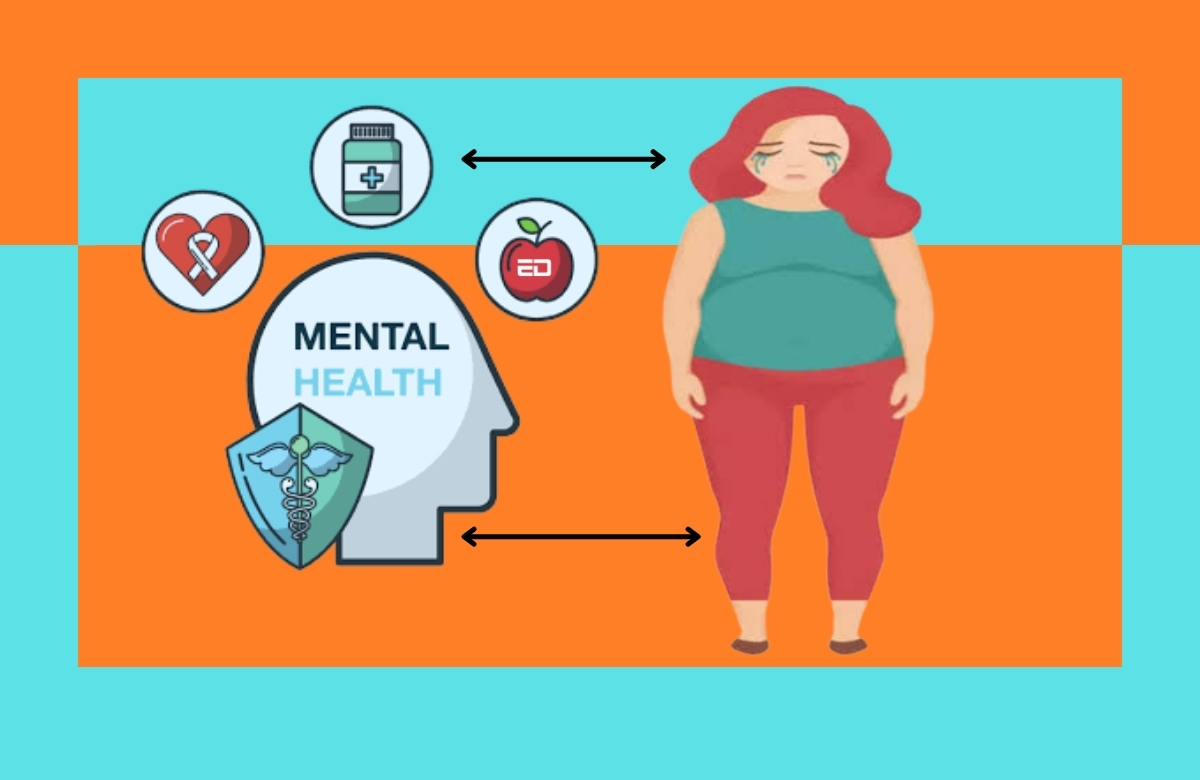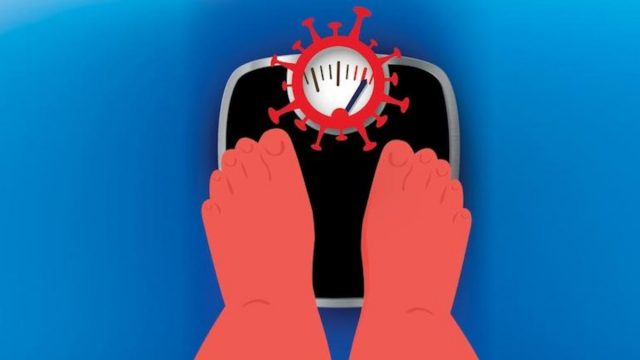Unwanted weight gain – something that troubles a lot my friends and acquaintances. In some cases a sedentary or an unhealthy lifestyle is to be blamed. Some other cases of unwanted weight gain, however, could be a side-effect of the medications that one takes.
A lot of times though, a combination of multiple factors could result in your body accumulating excess fat that is detrimental to health.
Mental health, as per research, is one of the key factors that affect your lifestyle. However, a lot of us take our mental health for granted, often neglecting it. The concept of mental hygiene is simple – it refers to the healthy maintenance of your mental processes to give your mental functionality its best form.
In this article, we will find out how mental health affects your weight. A proper disclaimer is in order – this article does not aim at body shaming in any form. The aim is to inform the readers that weight gain, if unwanted, might have something to do with mental health as well.
Food is a good way to uplift one’s mood. However, sometimes one might find oneself binging on fast food or their favourite kind of food in attempt to uplift their mood.
This is where things go a little out of hand, for a lot of people. Numerous studies have discovered a connection between mood and anxiety disorders and unwanted weight gain or worse, obesity.
Furthermore, being unwantedly overweight might set a vicious loop in motion. Being overweight might cause one to feel bad about themselves. Additionally, those who are overweight may experience stigma or judgement from others.
These incidents may cause low self-esteem. Obese individuals may find it challenging to engage in constructive activities, which can make it more difficult to manage unpleasant feelings. Furthermore, obesity is associated with a greater number of physical health issues and pain, which can elevate stress.
Read more: Breakfast Babble: Here’s Why Everyone Should Master The Art Of Saying ‘NO’
Decreased physical activity along with increased appetite is a common symptom of mood disorders like depression. As you can probably understand the combination is not quite healthy. Sometimes it is the other way round – people who get body shamed for being obese find themselves in the crevices of Depression.
While it is necessary to understand that most often unwanted weight gain is unhealthy – it causes undue stress in many vital organs, sometimes it is unavoidable. For people taking antidepressants, it comes as a common side effect. Diabetes is yet another disease that could lead to obesity.
Mental health conditions like Generalised Anxiety Disorder, Clinical Depression and other mood disorders like Bipolar Disorder have been linked with unwanted weight gain after a great deal of research.
Popular studies have been conducted to find out which one leads to another. So far, it is still the chicken or the egg problem – maybe it is a vicious loop!
It is important to understand that by stigmatizing unwanted gain or obesity, one is simply moving further away from good. Insensitive comments or judgements regarding the same only helps in reinforcing the negative loop.
A healthy lifestyle is always recommended. A little walk, a few squats, drinking nutrient rich liquids and water, maintaining a healthy diet, reading, enjoying recreational activities (of one’s choice), getting at least 7 hours of sleep are simples tasks that can be included one by one in the daily routine.
Keeping track of one’s thoughts and taking professional help if/when required, is a necessity in today’s world.
By taking care of one’s body and mind, a positive loop can be set in motion that keeps both mental and physical health in check.
Image Credits: Google Images
Sources: WebMD, GoodRx Health, Priory Group
Find the blogger: @SreemayeeN
This post is tagged under: food, mental health, millennials, mental disorders, anxiety attacks, anxiety disorder, clinical depression, bipolar disorder, Obesity, weight gain, healthy lifestyle
Disclaimer: We do not hold any right, copyright over any of the images used, these have been taken from Google. In case of credits or removal, the owner may kindly mail us.
Other recommendation:
Are You Addicted To Overthinking? Here’s How To Snap Out Of It








































